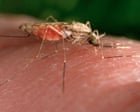
In recent weeks, significant developments in global health have emerged, highlighting both challenges and opportunities within the healthcare landscape. In Zimbabwe, a resurgence of malaria presents grave concerns, linked to significant funding cuts from the United States. Simultaneously, shifts in American healthcare policies have sparked debates around science and research. Meanwhile, legislative changes are being considered in Portugal to enhance the availability of organs for transplants, pointing towards a positive stride in healthcare resource optimization.
Zimbabwe’s battle with malaria has intensified, signaling a troubling turn of events. The disease, which had been significantly controlled over the years, has rebounded “with a vengeance” following the retreat of critical US aid. This funding was pivotal in supporting research and national response programs aimed at malaria control. In 2025 alone, Zimbabwe has reported 115 outbreaks, a stark contrast to last year’s single case. The withdrawal of USAID resources, an effect of policy decisions under the Trump administration, has resulted in a shortage of essential tools such as mosquito nets, putting thousands at risk. This situation underscores the vital role international aid plays in supporting healthcare initiatives in vulnerable regions and the potential detriment of its absence.
In the United States, the healthcare landscape is confronting a wave of change with the recent empowerment of health and human services secretary Robert F. Kennedy Jr., a known vaccine skeptic. His administration, marked by ideological budget cuts and mass firings, has raised alarms among health experts. These actions are viewed within the context of a broader “war on science,” with the politicization of science-based policymaking at stake. Notably, the cancellation of a key healthcare advisory panel meeting, along with the removal of numerous vaccine advisers, signals a shift away from evidence-based decision-making. These developments could have long-term implications for healthcare and scientific research within the country, affecting both national and global health initiatives.
On a more positive note, in Portugal, the potential for legislative changes offers a beacon of hope in the realm of organ transplantation. The Portuguese Society of Transplantation is advocating for a legal amendment that would allow the utilization of organs from individuals nearing the end of their lives. This change is projected to increase the number of available organs for transplants by an estimated 30%, significantly impacting patients awaiting life-saving procedures. Such an initiative highlights the importance of innovative legislative solutions in enhancing healthcare resources and saving lives.
The global health landscape continues to evolve, underscoring the interconnected nature of health policies and their far-reaching impact. While challenges persist, particularly in regions like Zimbabwe and amidst policy shifts in the US, opportunities for growth and improvement, as seen in Portugal, inspire hope and underscore the essential nature of adaptable and resourceful healthcare strategies.
Source: {link}
